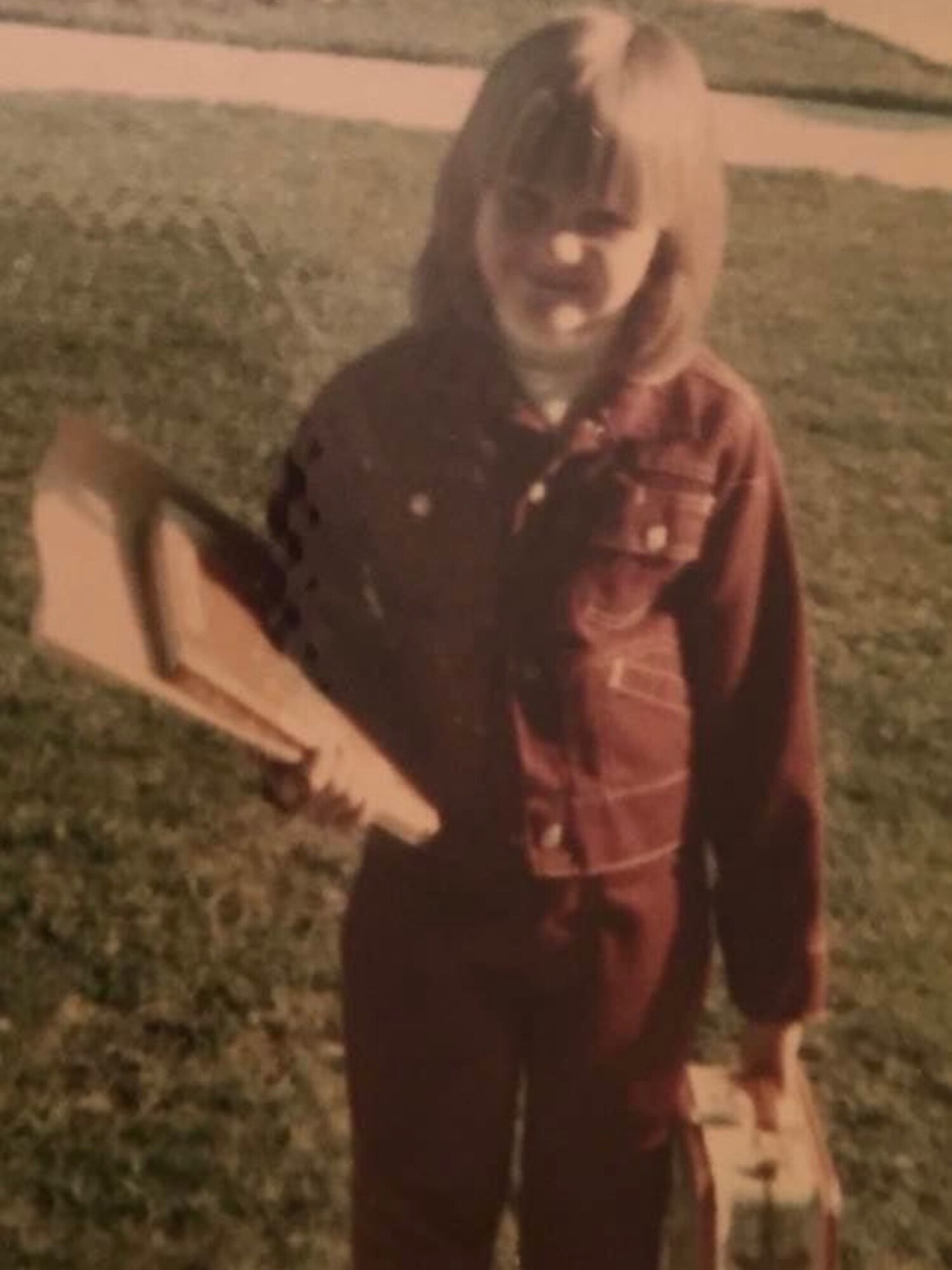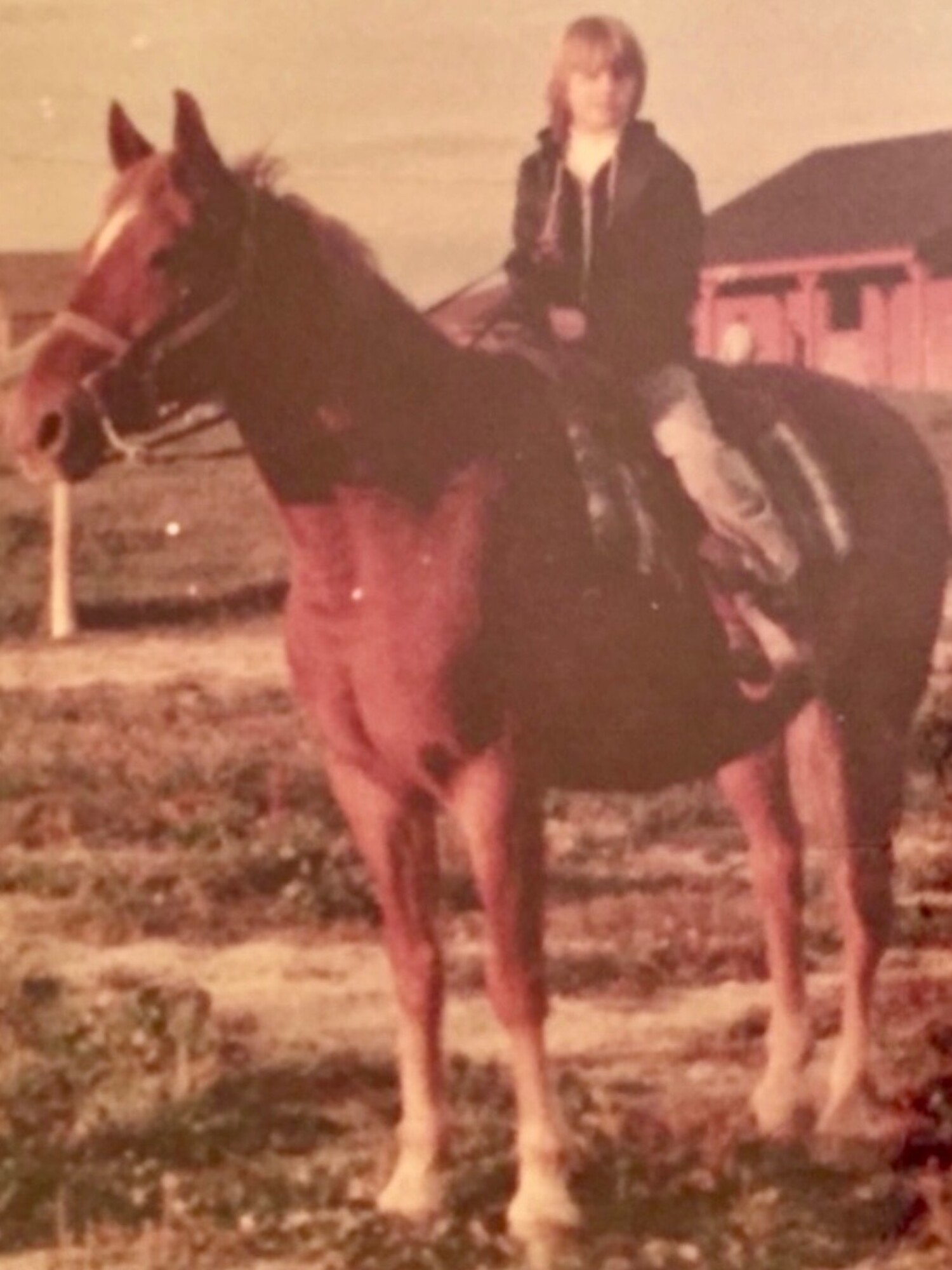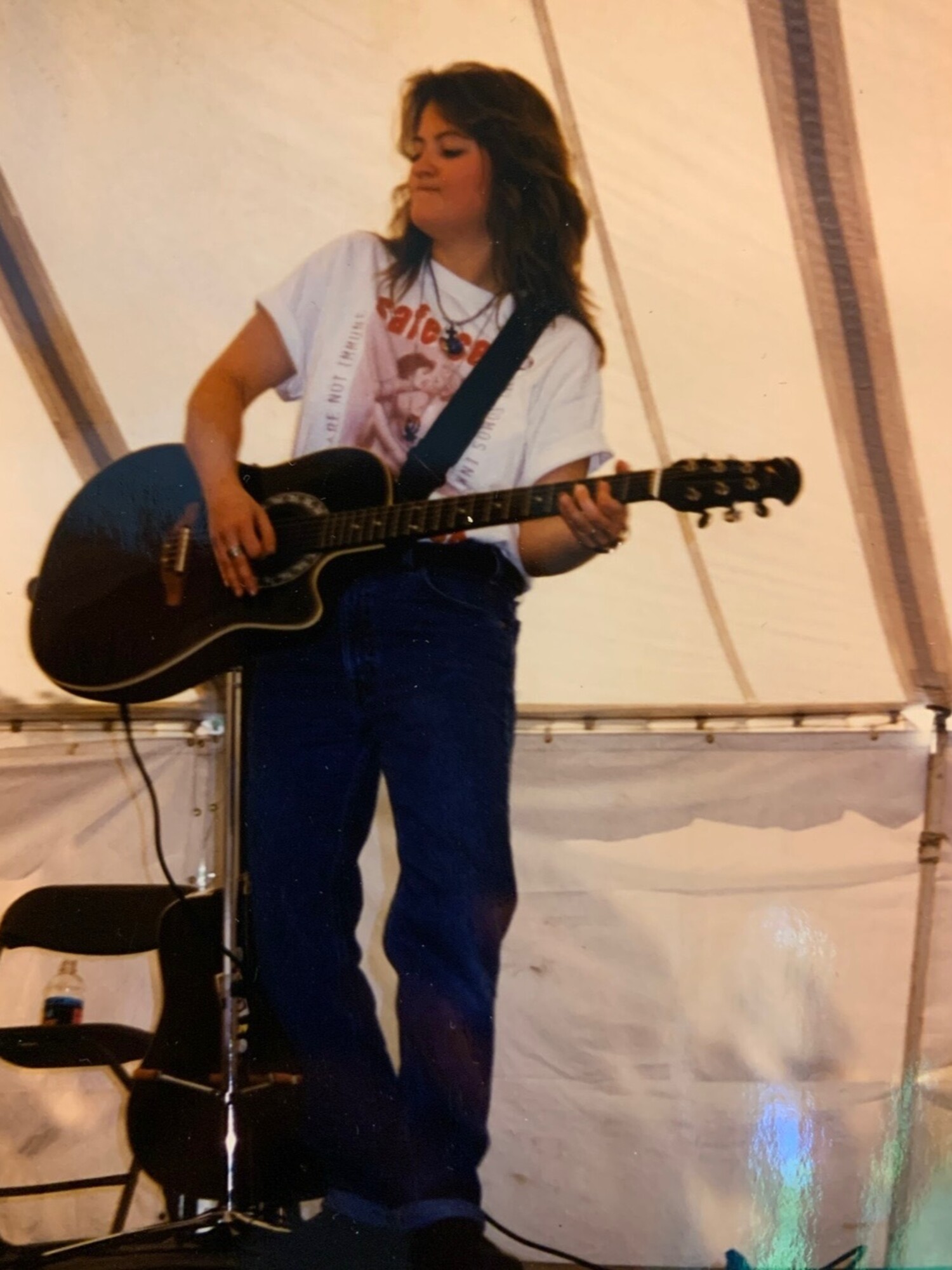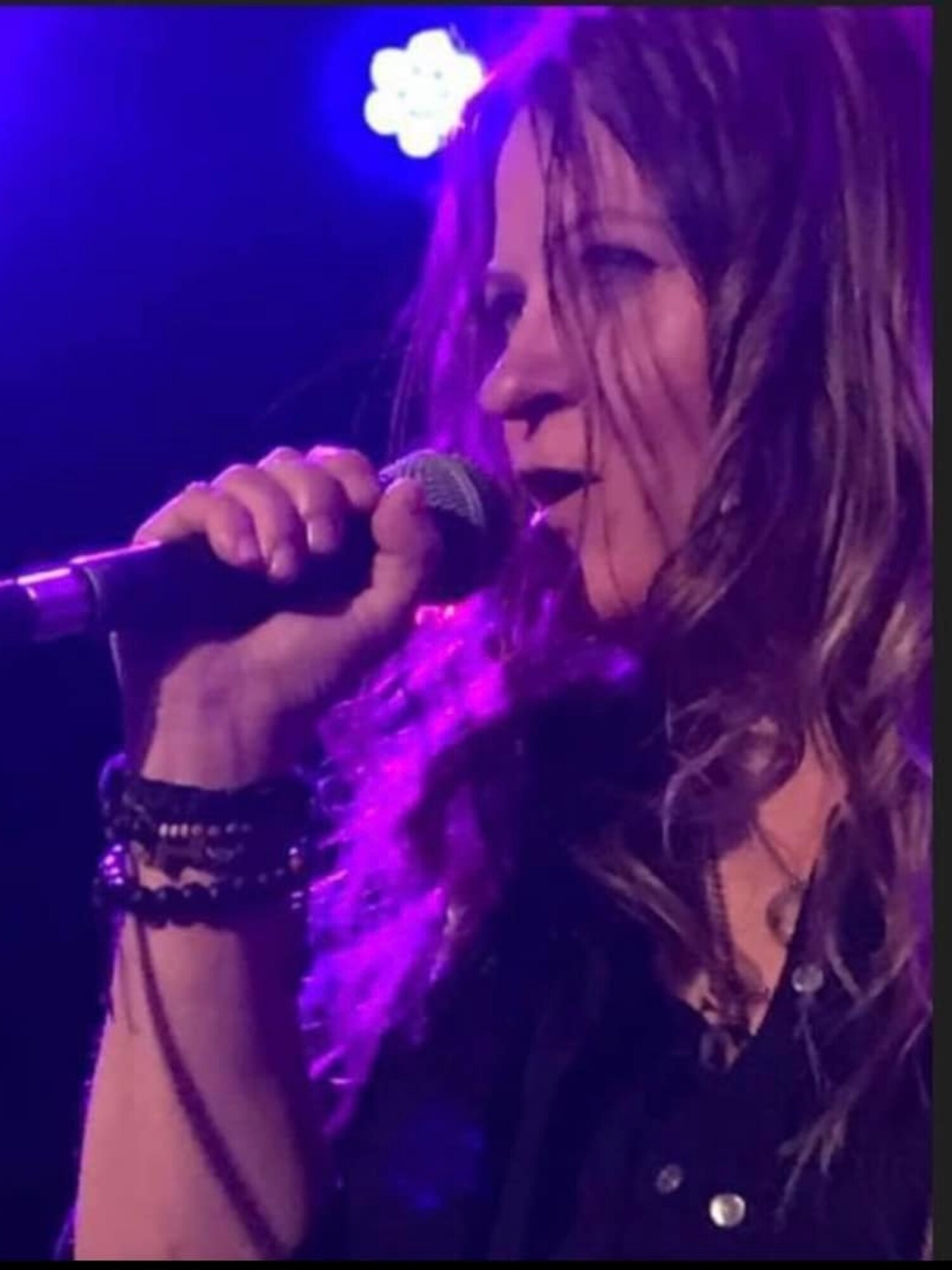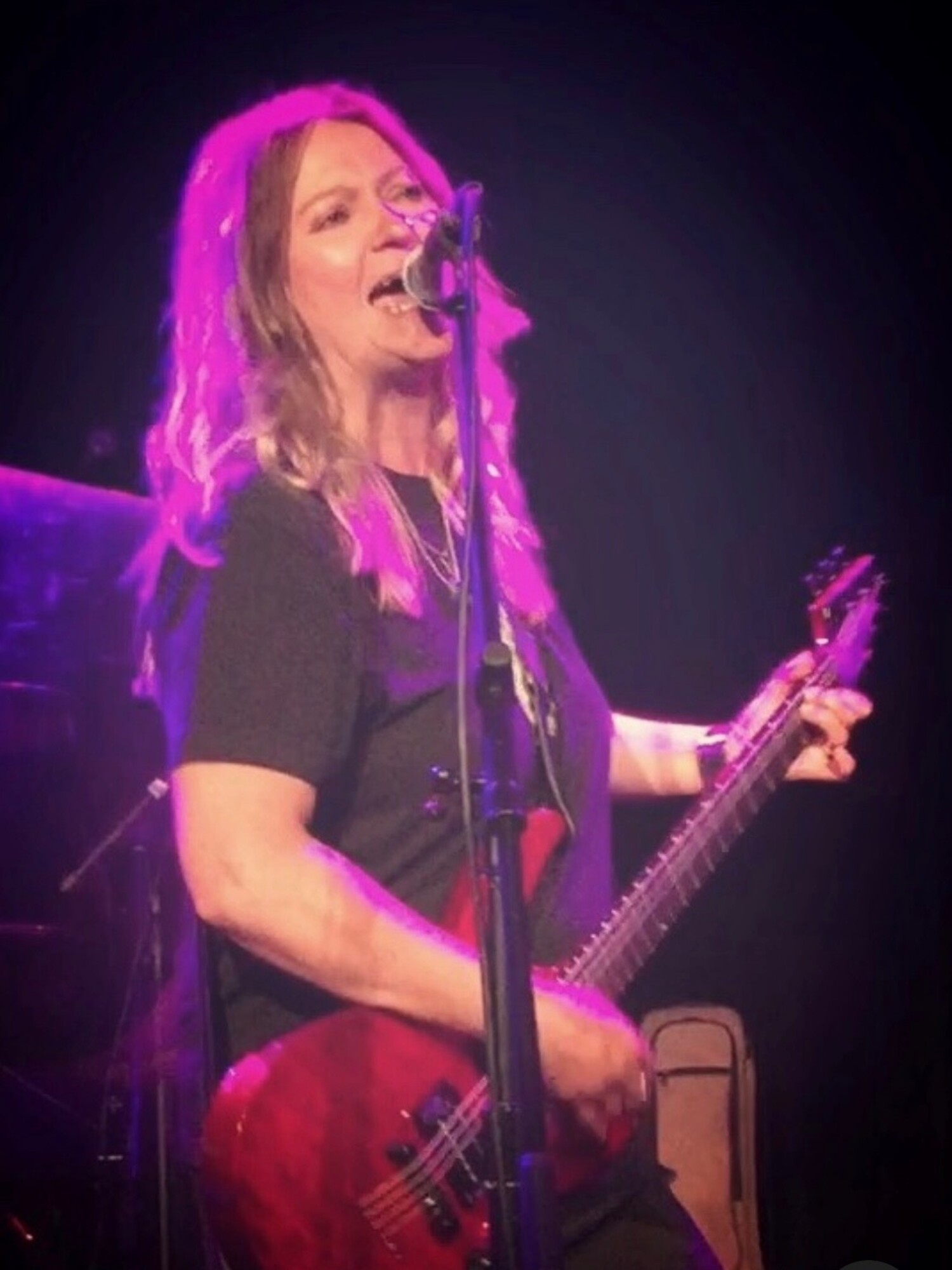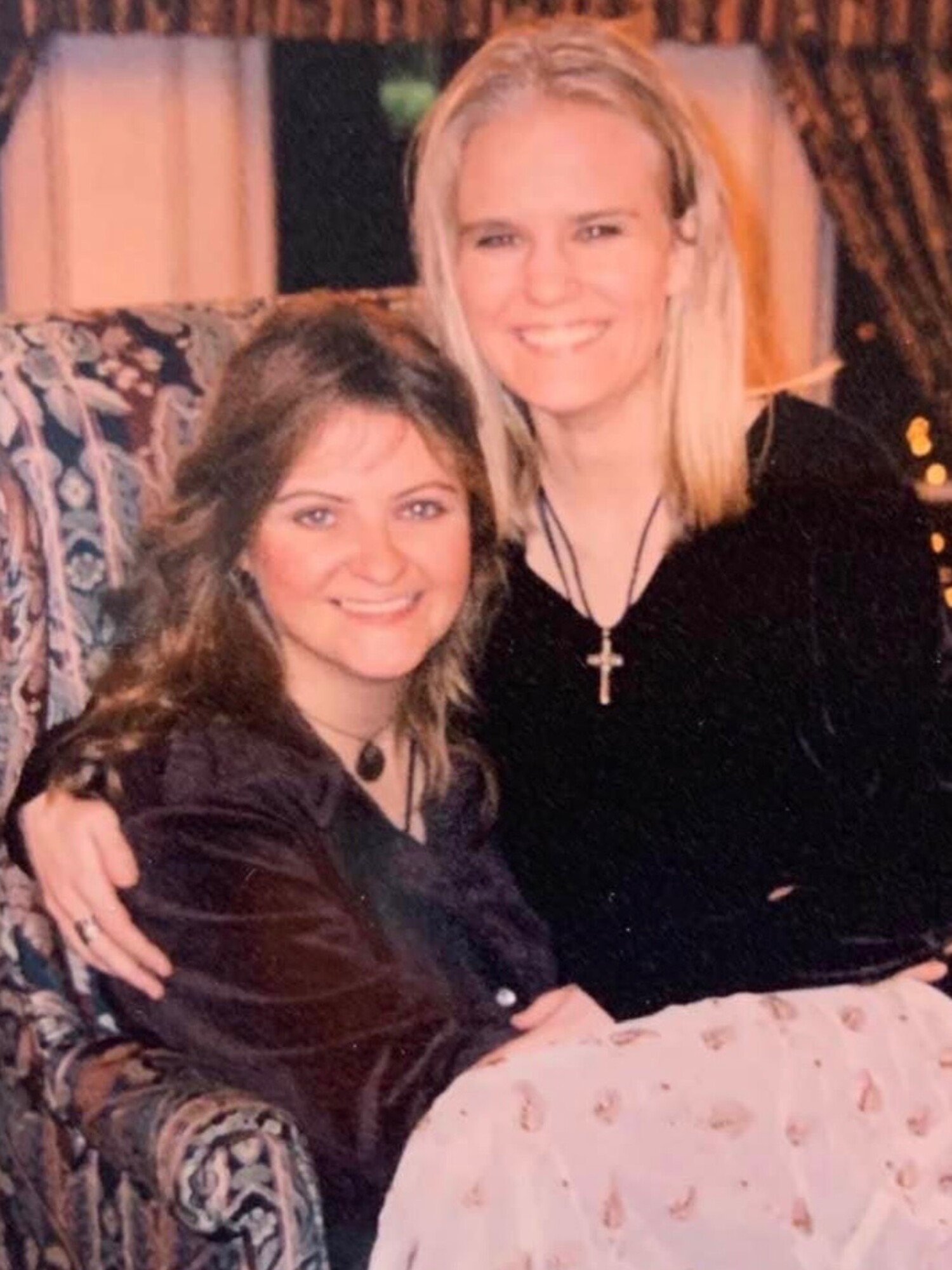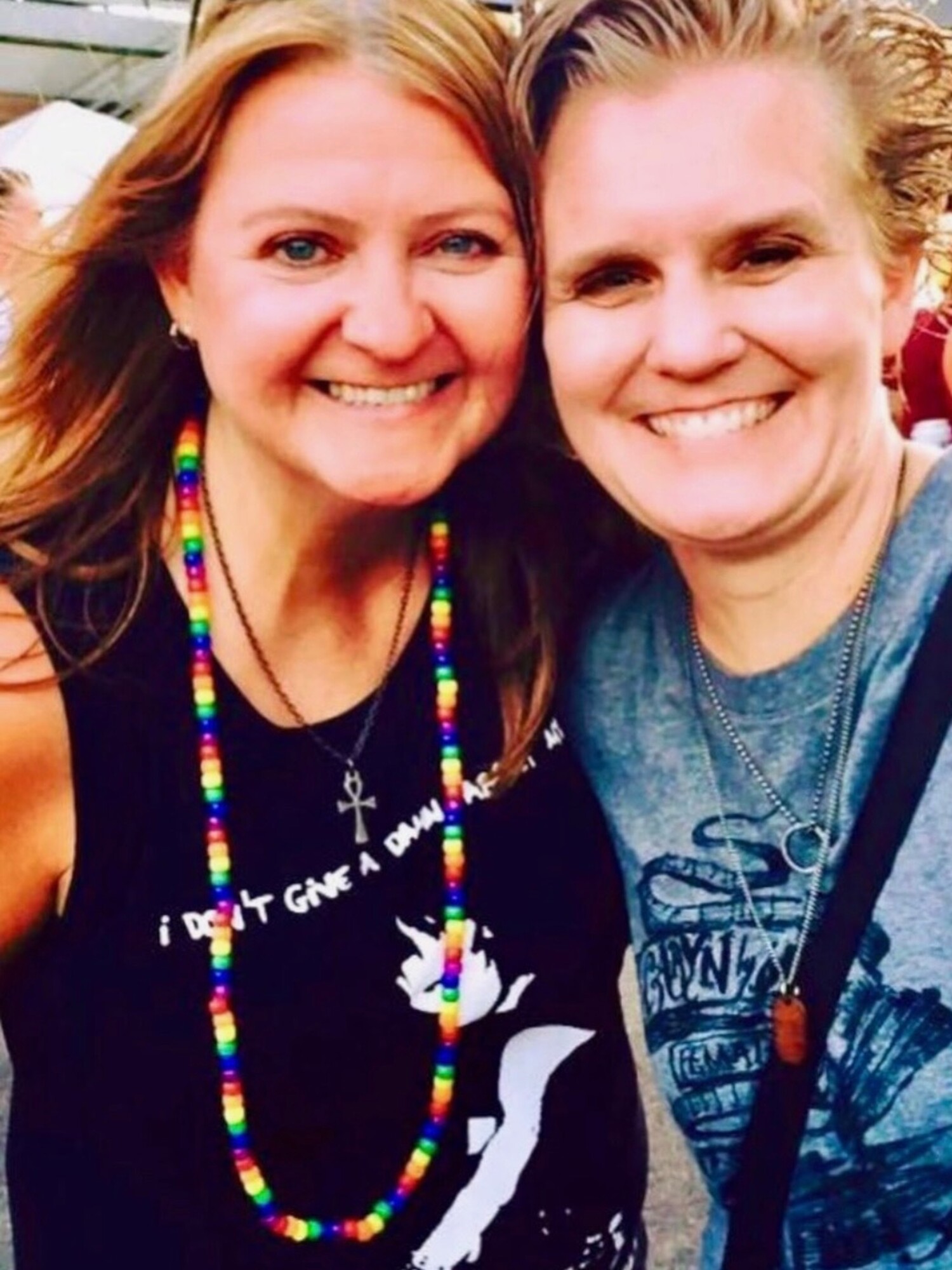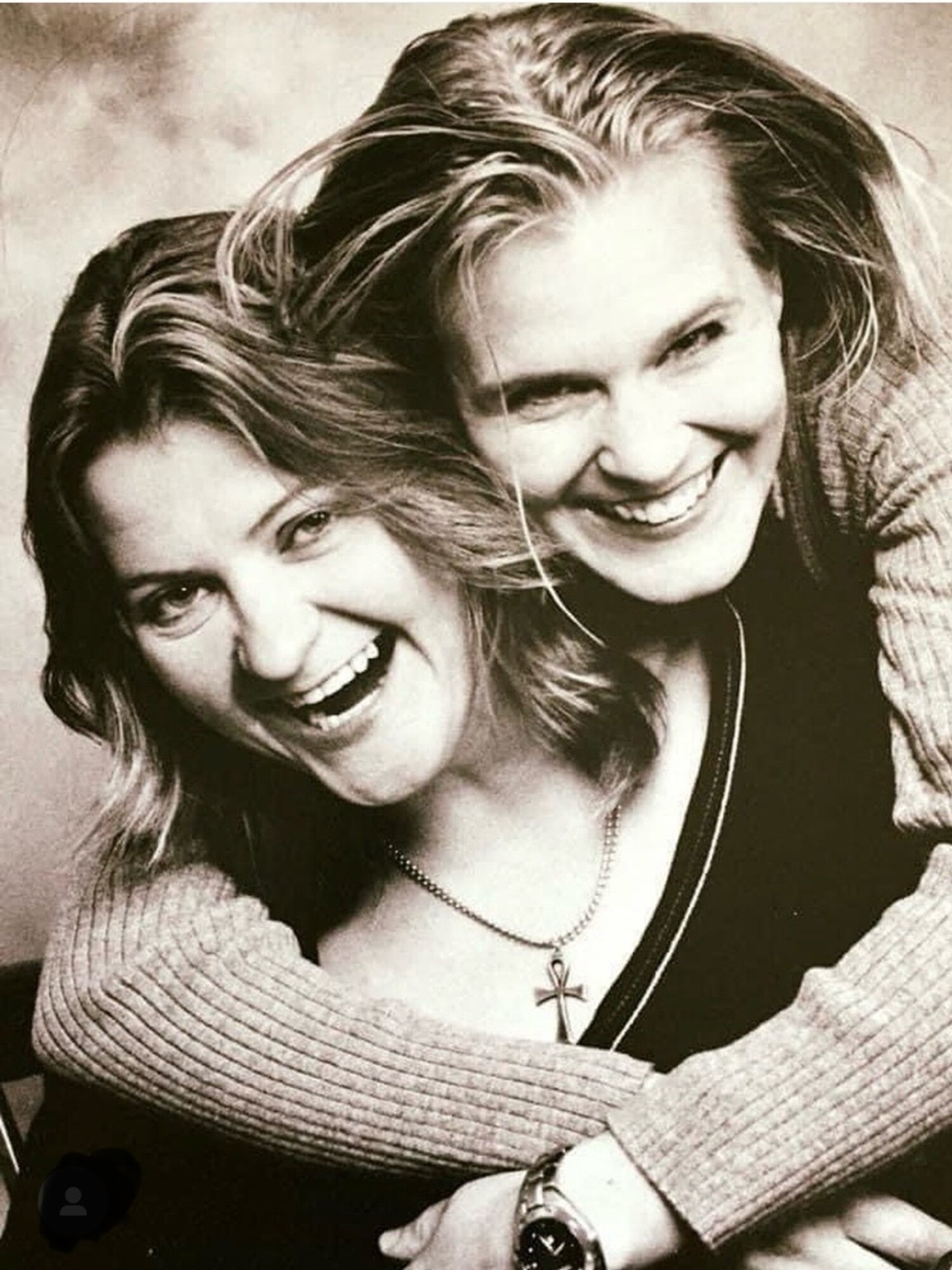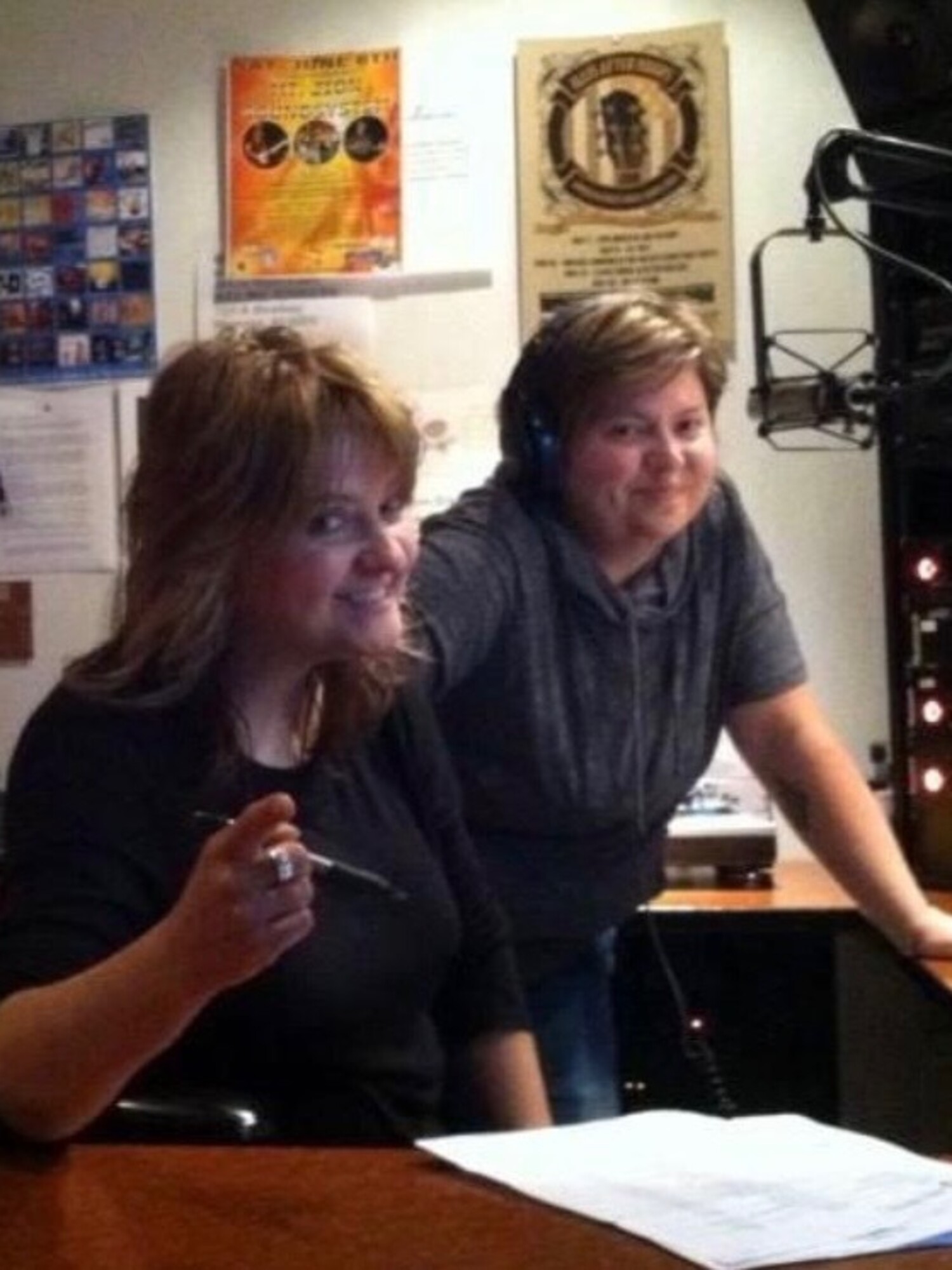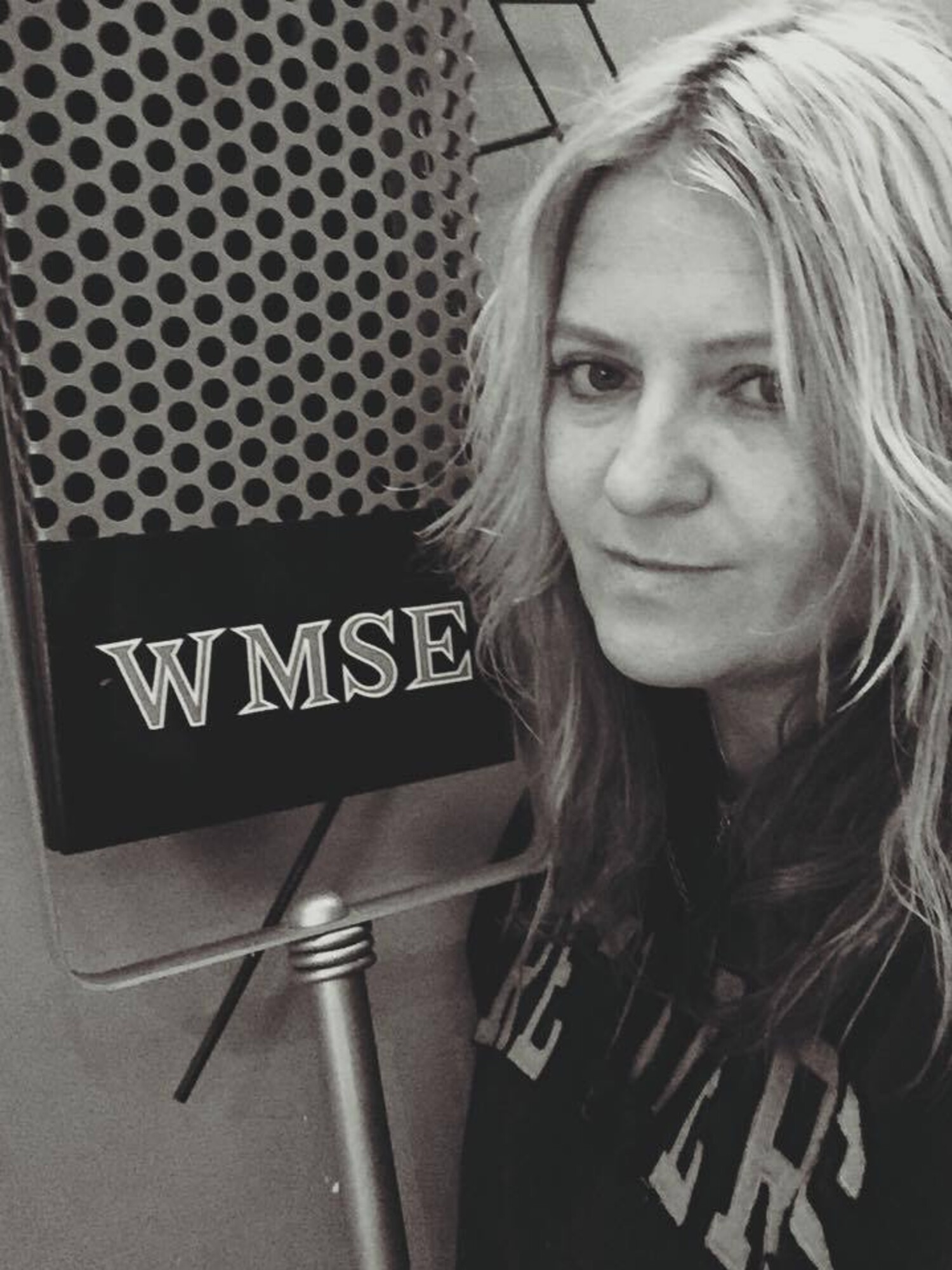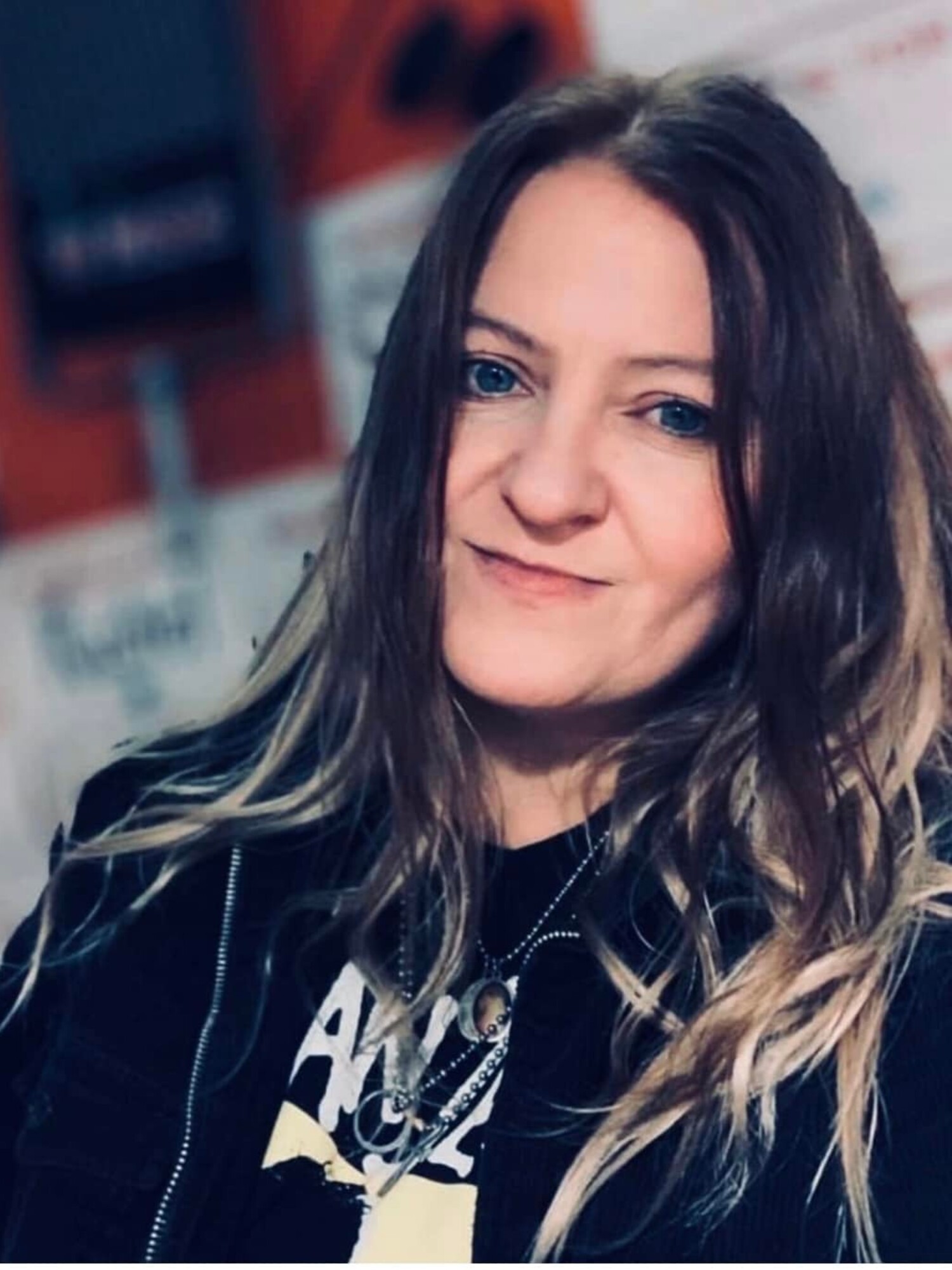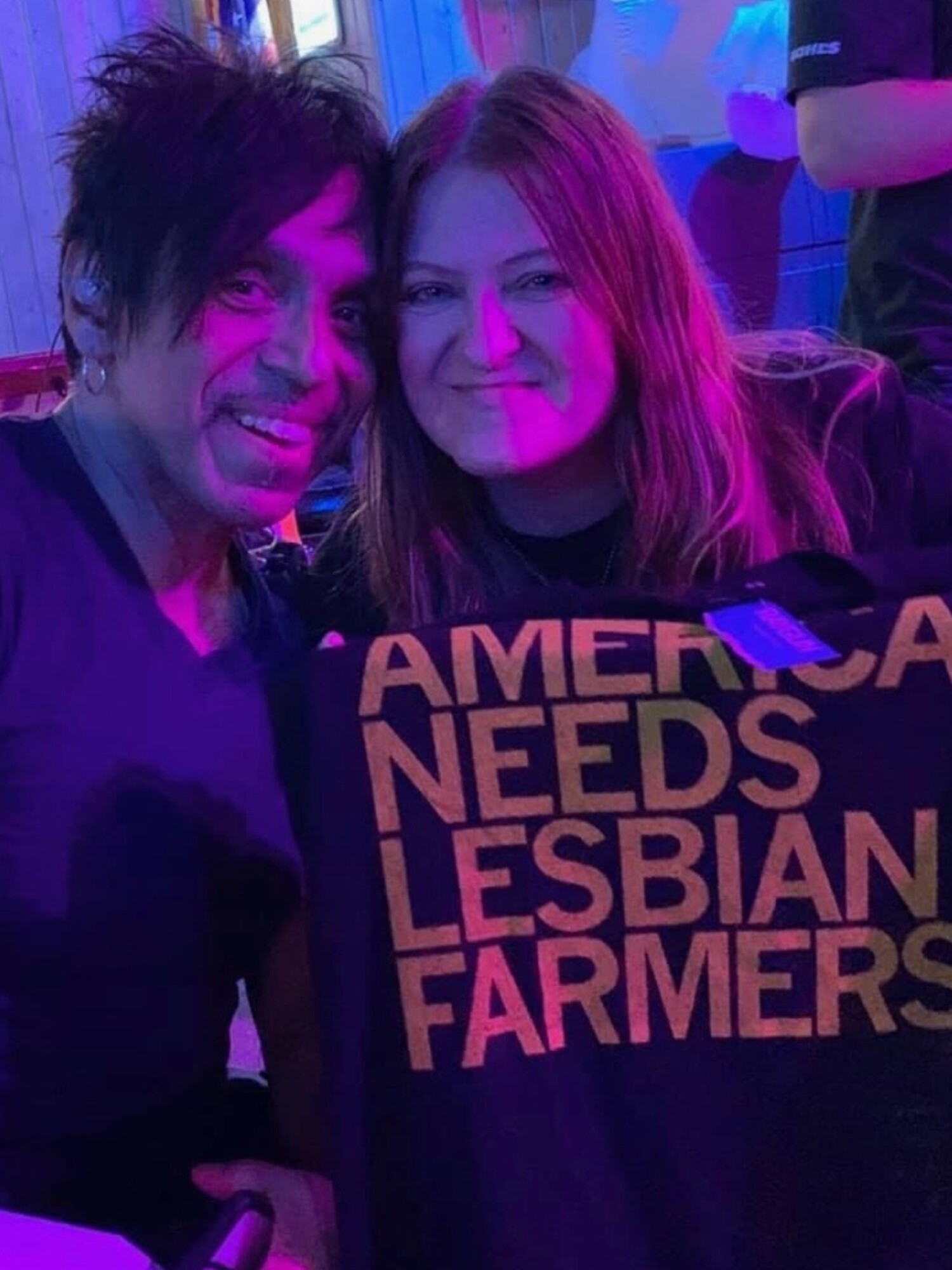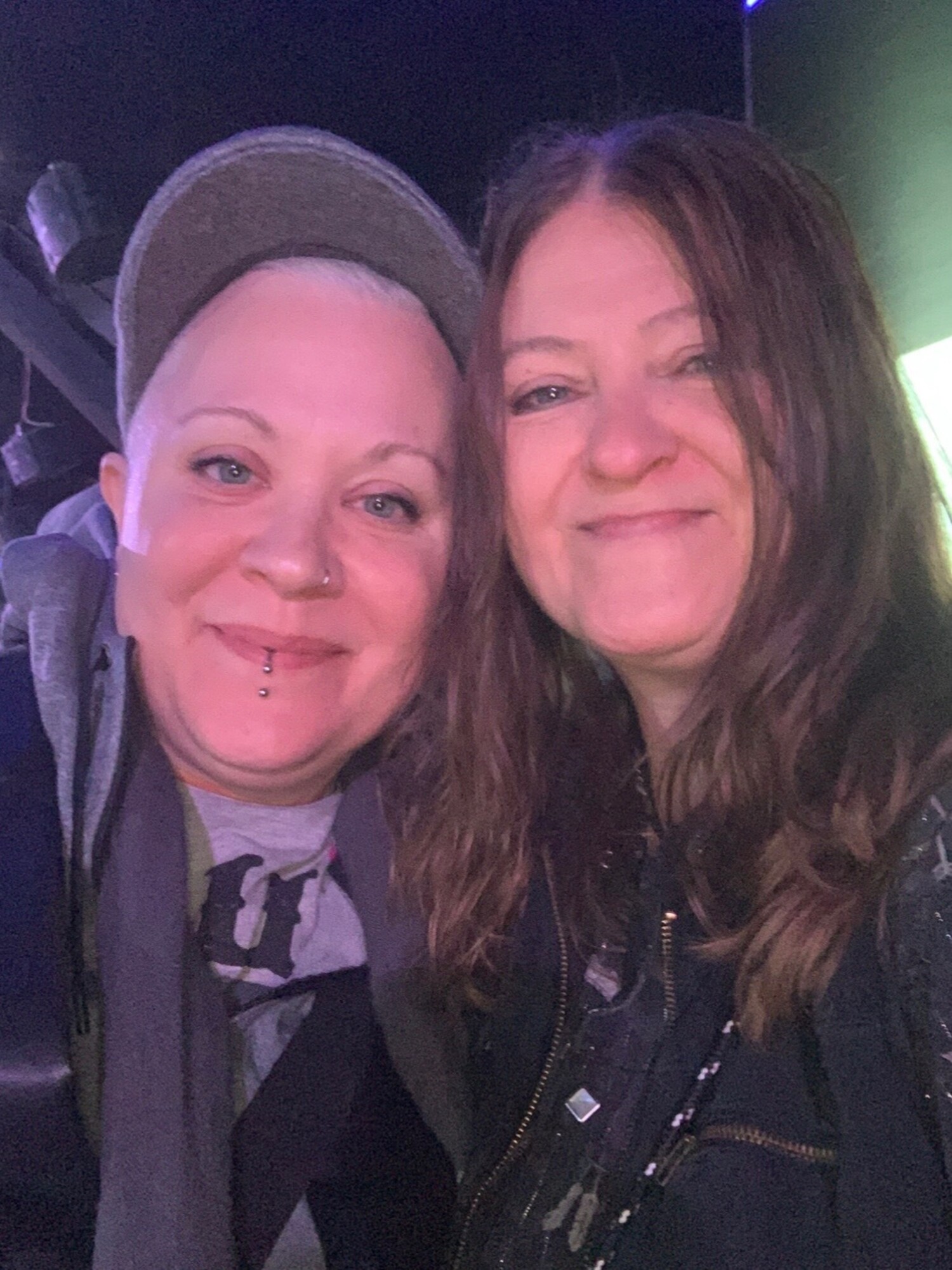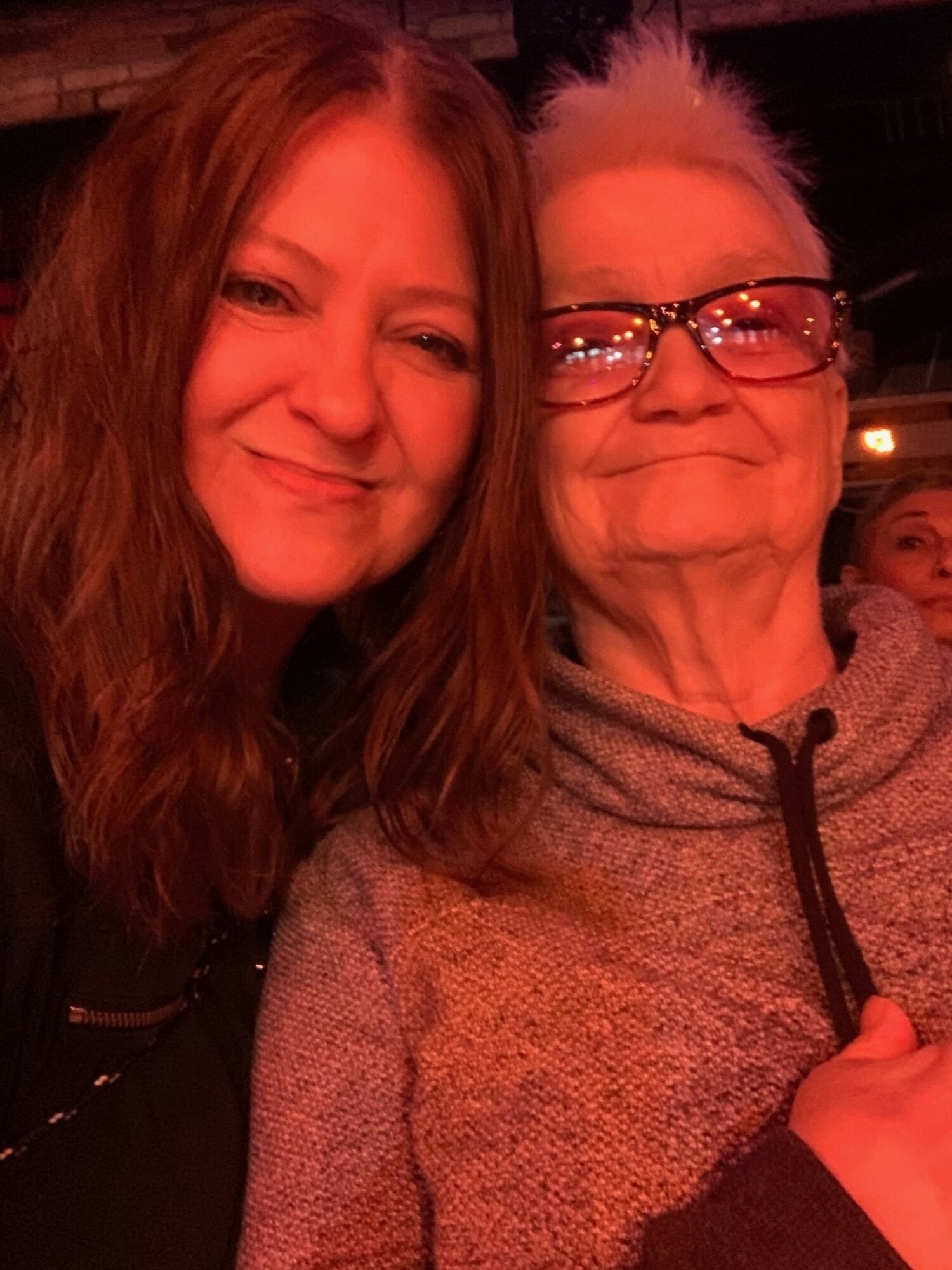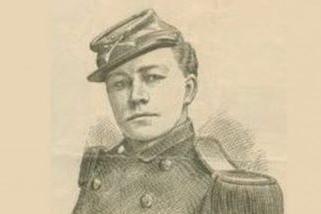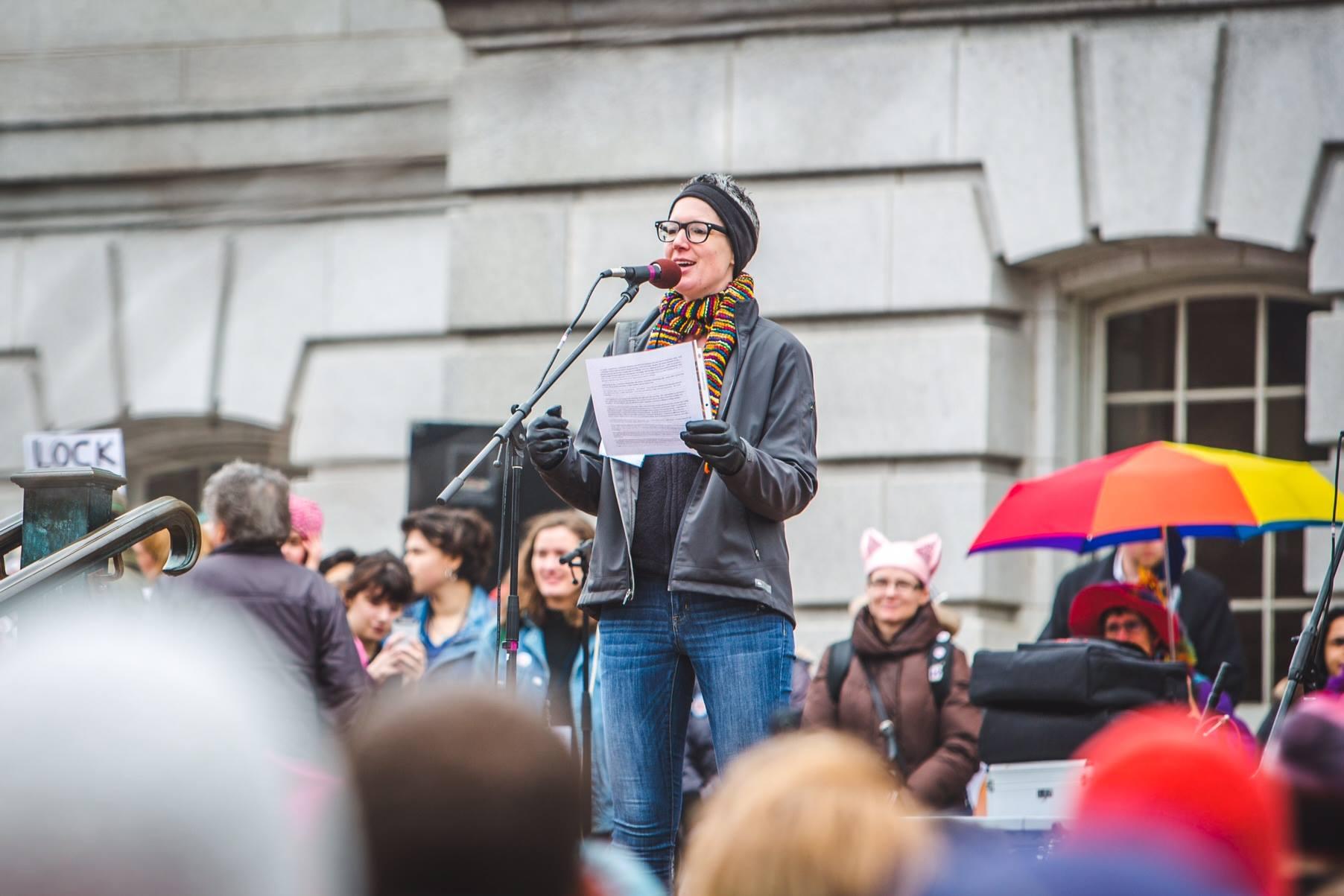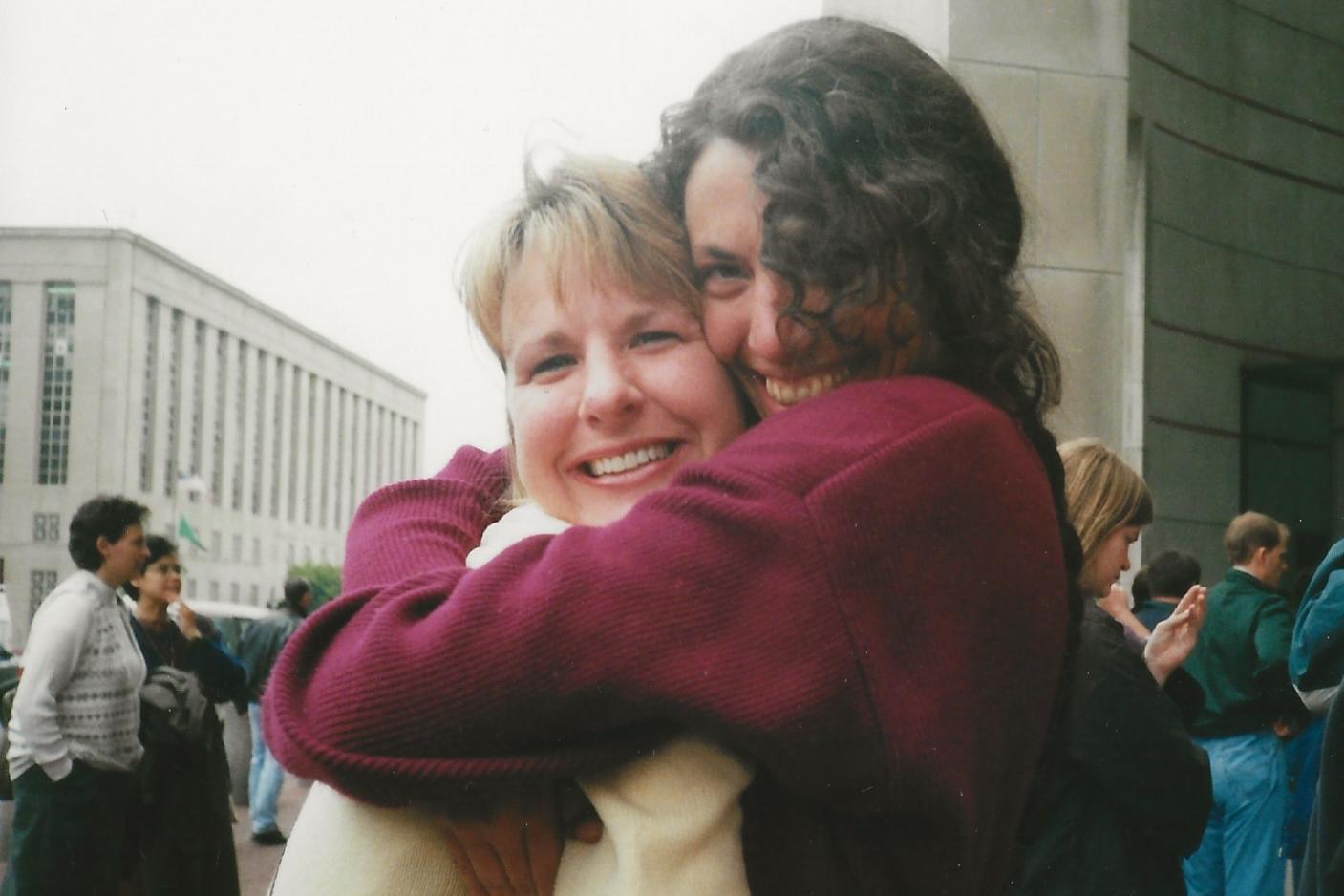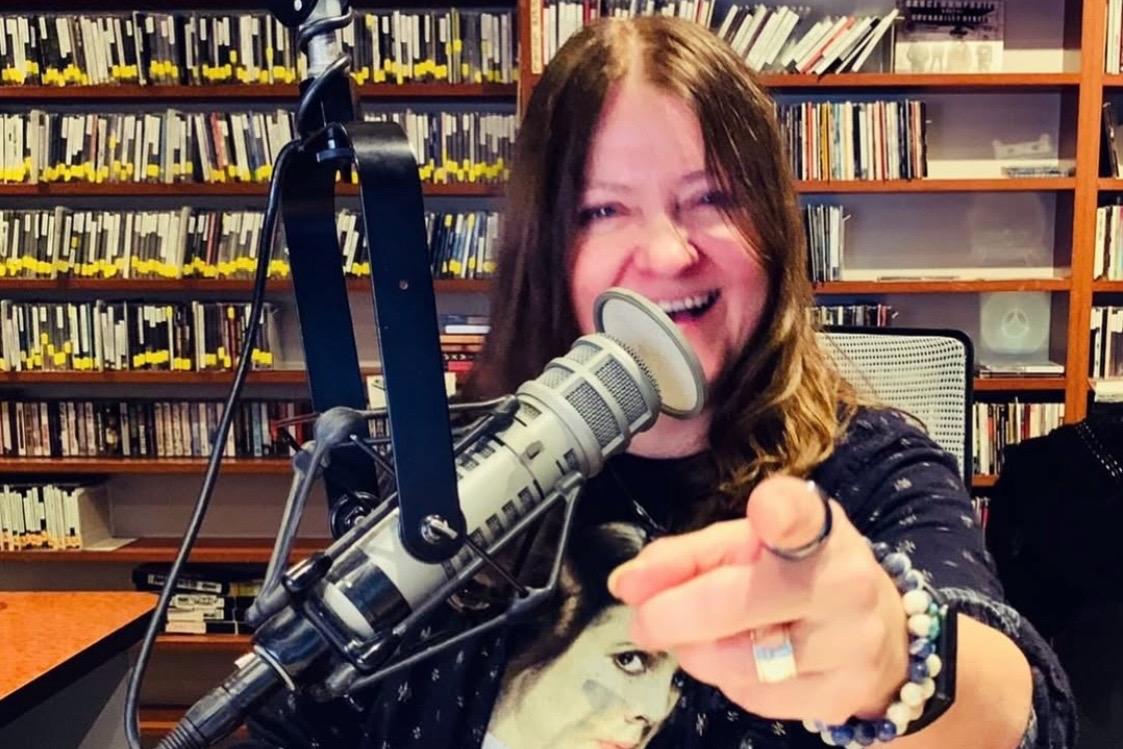
Caryn Moczynski: authentic, amplified and living out loud

"Music is so healing: it’s a connector that brings us all together"
When Caryn Moczynski graduated college with a Psychology degree, she didn't envision herself with a career as one of the longest running local radio DJs in Milwaukee.
Her weekly program 'Female Focus' airs on WMSE Radio 91.7FM on Sunday nights from 10:30pm to 12am. WMSE has been a providing diverse music programming in Southeastern Wisconsin since 1981. ‘Female Focus’ features female artists across the music spectrum, across the decades, and across all genres, including local and international artists.
Before joining WMSE, Caryn dedicated 25 years to a career in the Disability Services space, working for Milwaukee County and the State of Wisconsin. Her work supported individuals across a wide spectrum of needs, from supporting transitioning youth to assisting the elderly.
Although radio wasn’t initially part of her career plan, her deep-rooted passion for music and community ultimately guided her toward an unexpected career path.
With her already-busy social life, word spread fast, and her coming out felt natural and organic.
“I decided to just go for it,” Caryn said. “Scorched earth. Tell everyone at once and let the chips fall where they may.”
At the time, she was spending a lot of time with her best friend Mike, and people often assumed they were a couple—something Caryn found hilarious since, in her words, they were both clearly queer.
When people asked if she was gay, she owned it with confidence and tried to approach it with openness.
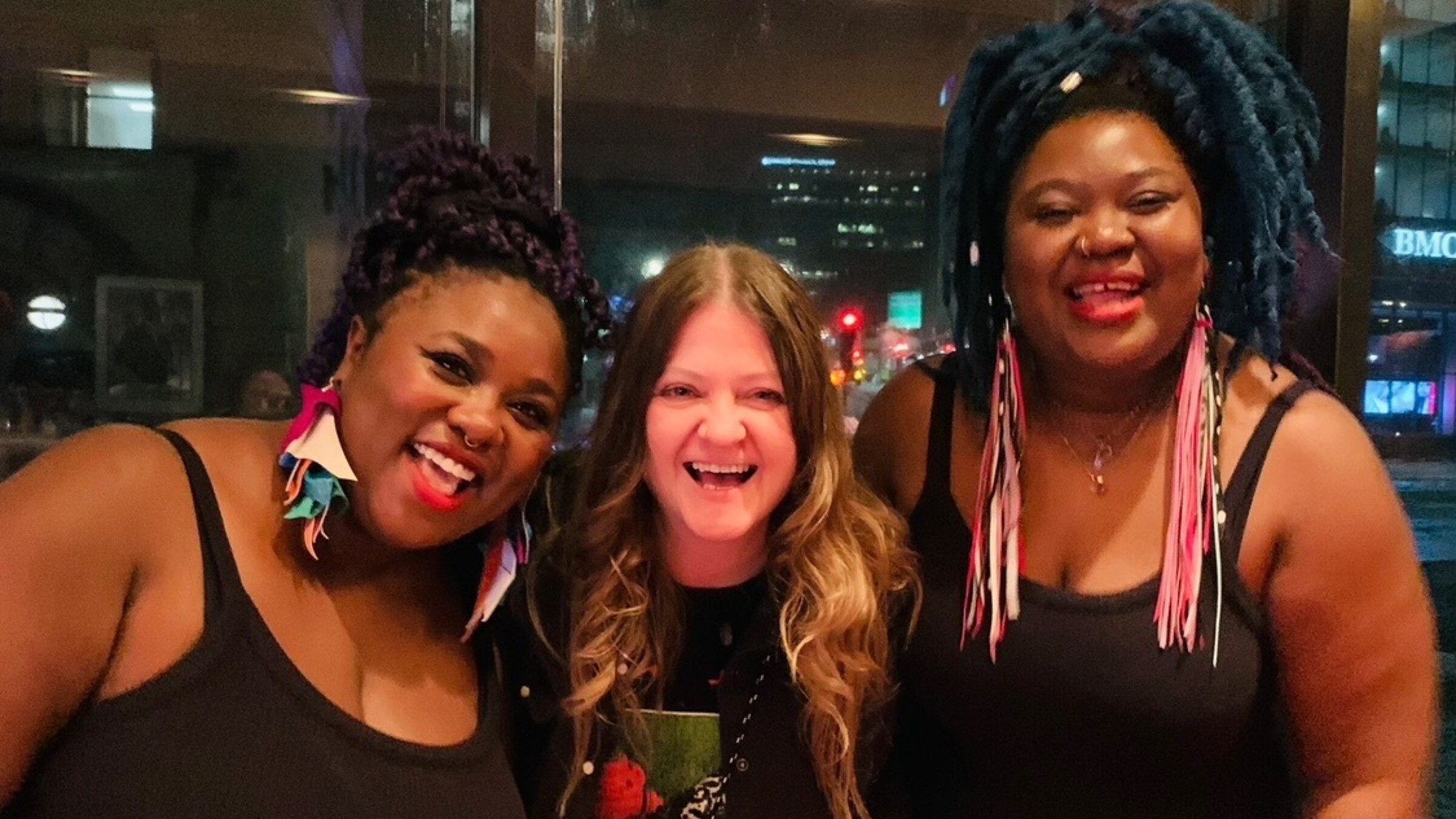 Caryn with SistaStrings (now performing with Brandi Carlile)
Caryn with SistaStrings (now performing with Brandi Carlile)
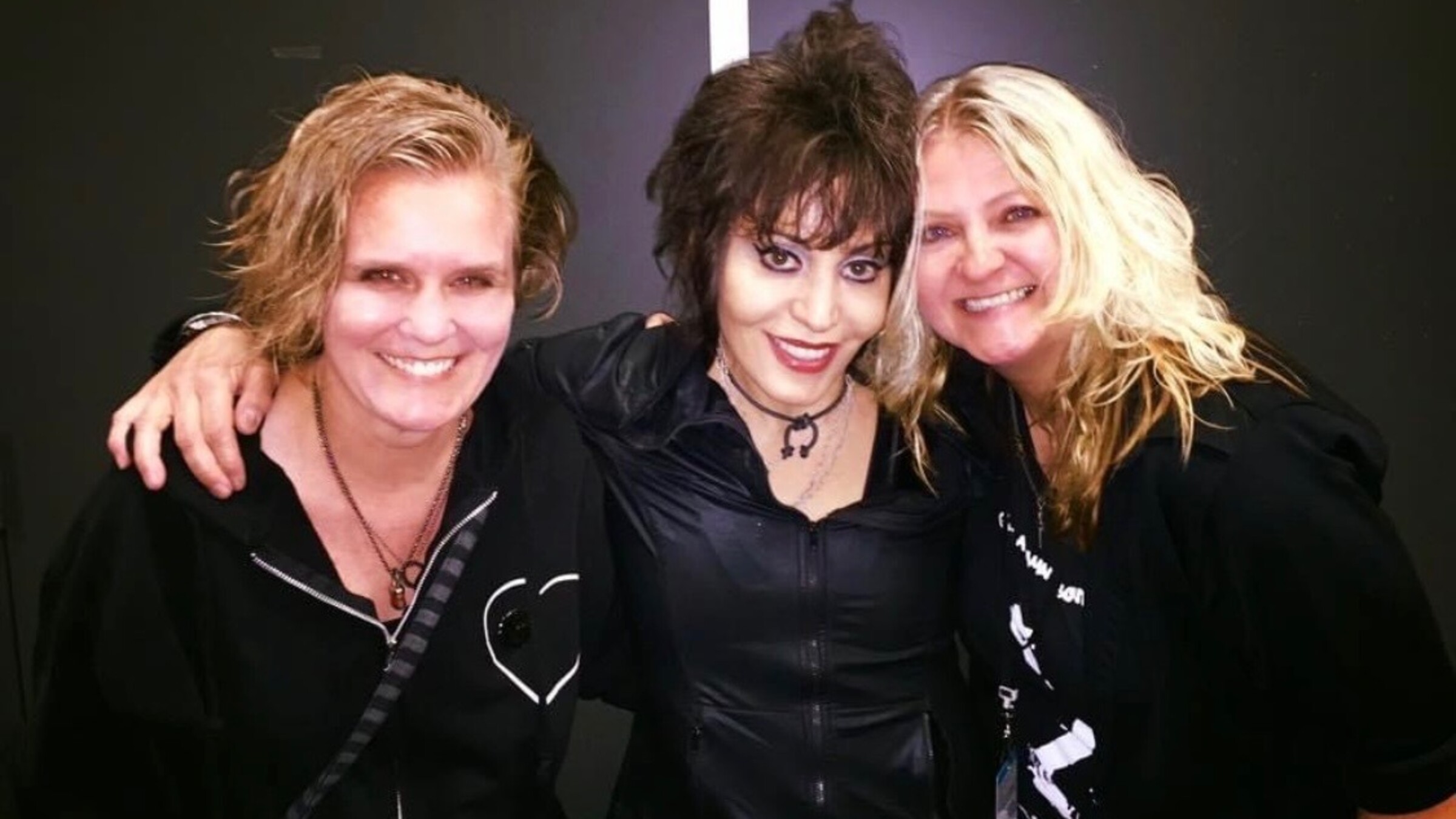 Caryn and Danae with the legendary Joan Jett
Caryn and Danae with the legendary Joan Jett
That encouragement sparked something. Caryn met with the station manager, and their conversation was everything she hoped for—fluid, inspiring, and full of alignment.
Before long, Caryn stepped behind the mic and stepped into her new role as a radio DJ. It was a dream she hadn’t even known she had.
Growing up, Caryn had been used to commercial radio—tightly curated playlists, a single genre per station, and maybe, if you were lucky, the chance to call in a request.
But WMSE was a different world entirely. Here, DJs were trusted to curate their own shows, select their own music, and be the creative force behind their airtime. There was freedom and intention in every playlist.
And with Female Focus, Caryn got to do something bold and deeply personal: shine a spotlight on incredible women artists across all genres—rock, hip hop, R&B, classical, blues, prog, and beyond.
She’s deeply committed to showcasing queer artists and uplifting underrepresented talent.
“There’s so much richness and diversity in music,” she said. “It’s an incredible thing to be part of.”
Caryn feels grateful to be godparents to some great young people, and when she reflected on the advice she’d give to her younger self—or to any young queer person—she’s thoughtful.
“Live authentically - that will lead to your best life.”
She encourages young people not to get bogged down in the negativity of social media.
“Find your community. We are lucky to have strong ones here in Milwaukee—with PrideFest, the parade, and so many safe spaces. You’ve just got to look for them.”
Her final bit of advice is simple but heartfelt.
“Be kind. I know it sounds cliché, but kindness matters. Find the elders in your community—they want to help. Let them.”
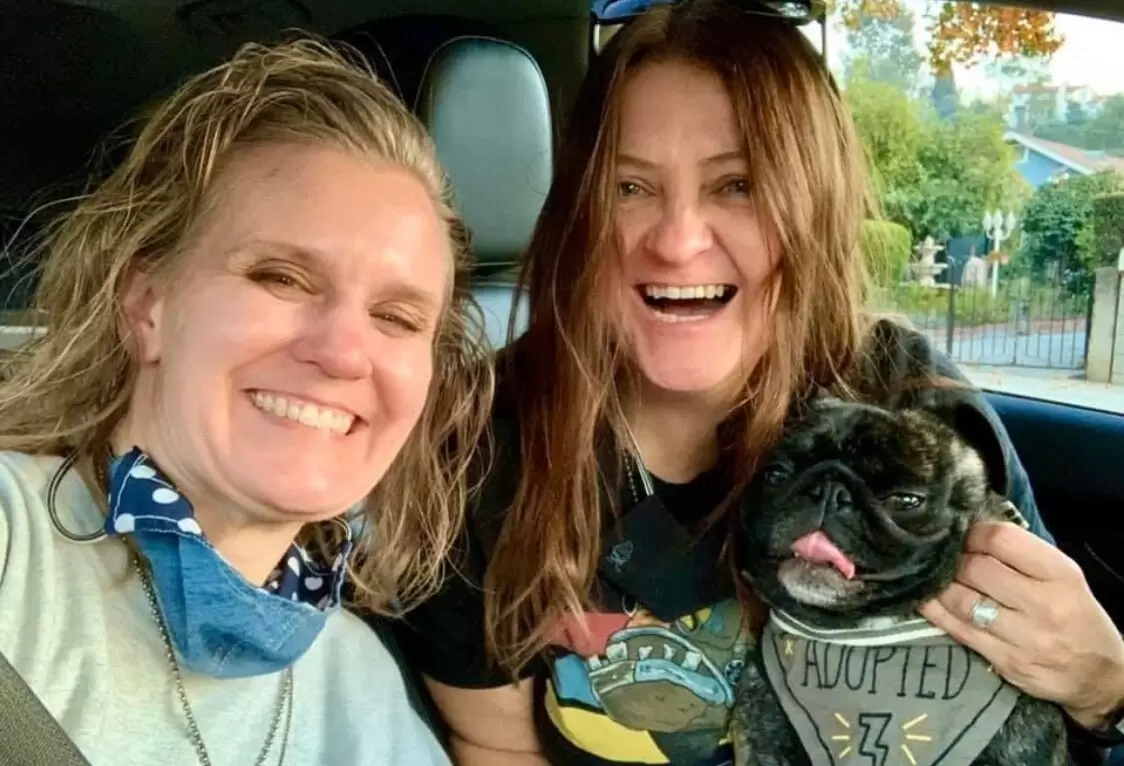 Danae, Caryn, and a rescue pug
Danae, Caryn, and a rescue pug
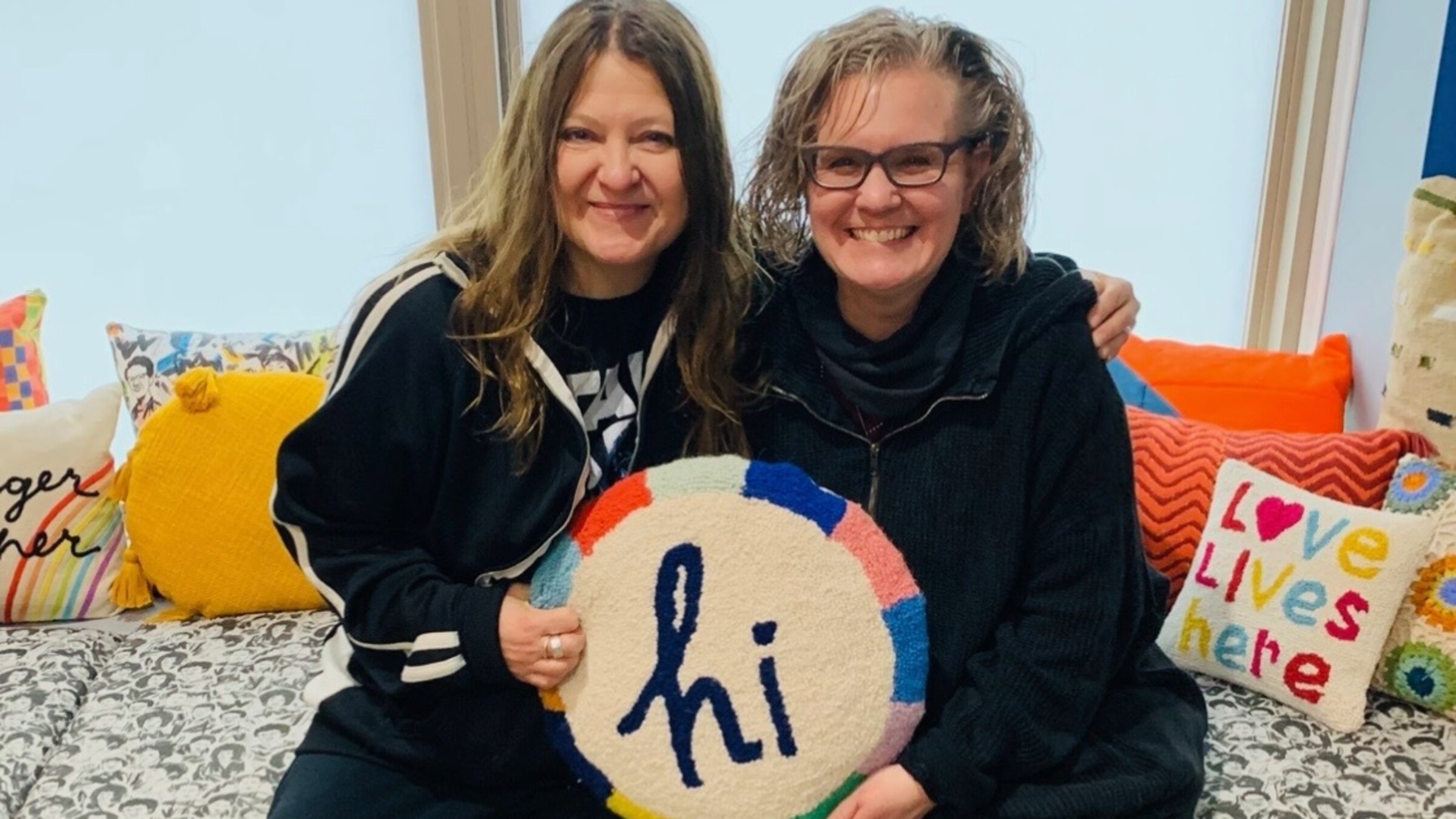 Caryn and Danae at the Courage House
Caryn and Danae at the Courage House
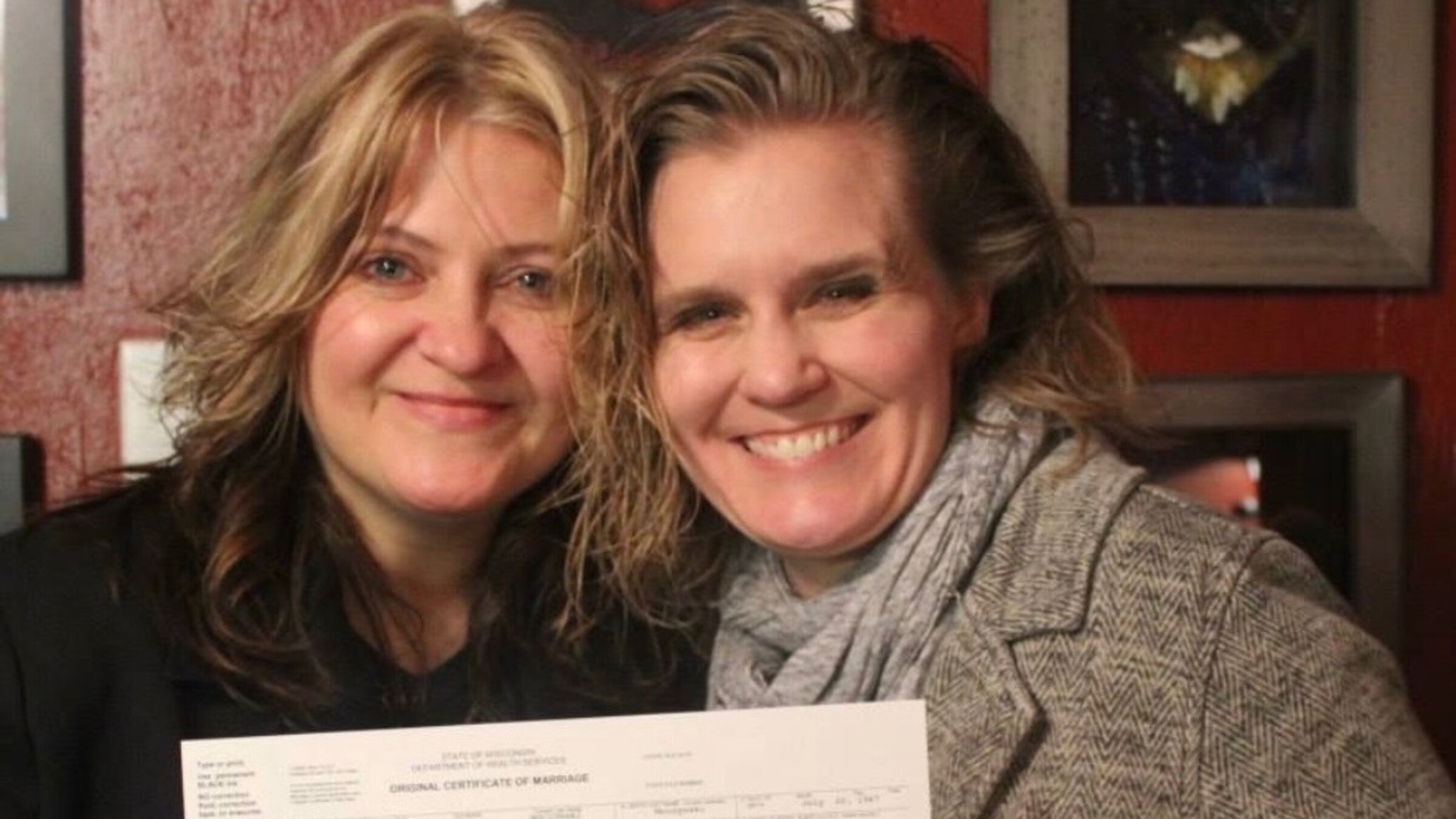 Caryn and Danae on their wedding day
Caryn and Danae on their wedding day
recent blog posts
April 22, 2025 | Michail Takach
April 21, 2025 | Michail Takach
April 06, 2025 | Michail Takach
Camille Farrington & Vicki Shaffer: standing up for students
The concept for this web site was envisioned by Don Schwamb in 2003, and over the next 15 years, he was the sole researcher, programmer and primary contributor, bearing all costs for hosting the web site personally.
